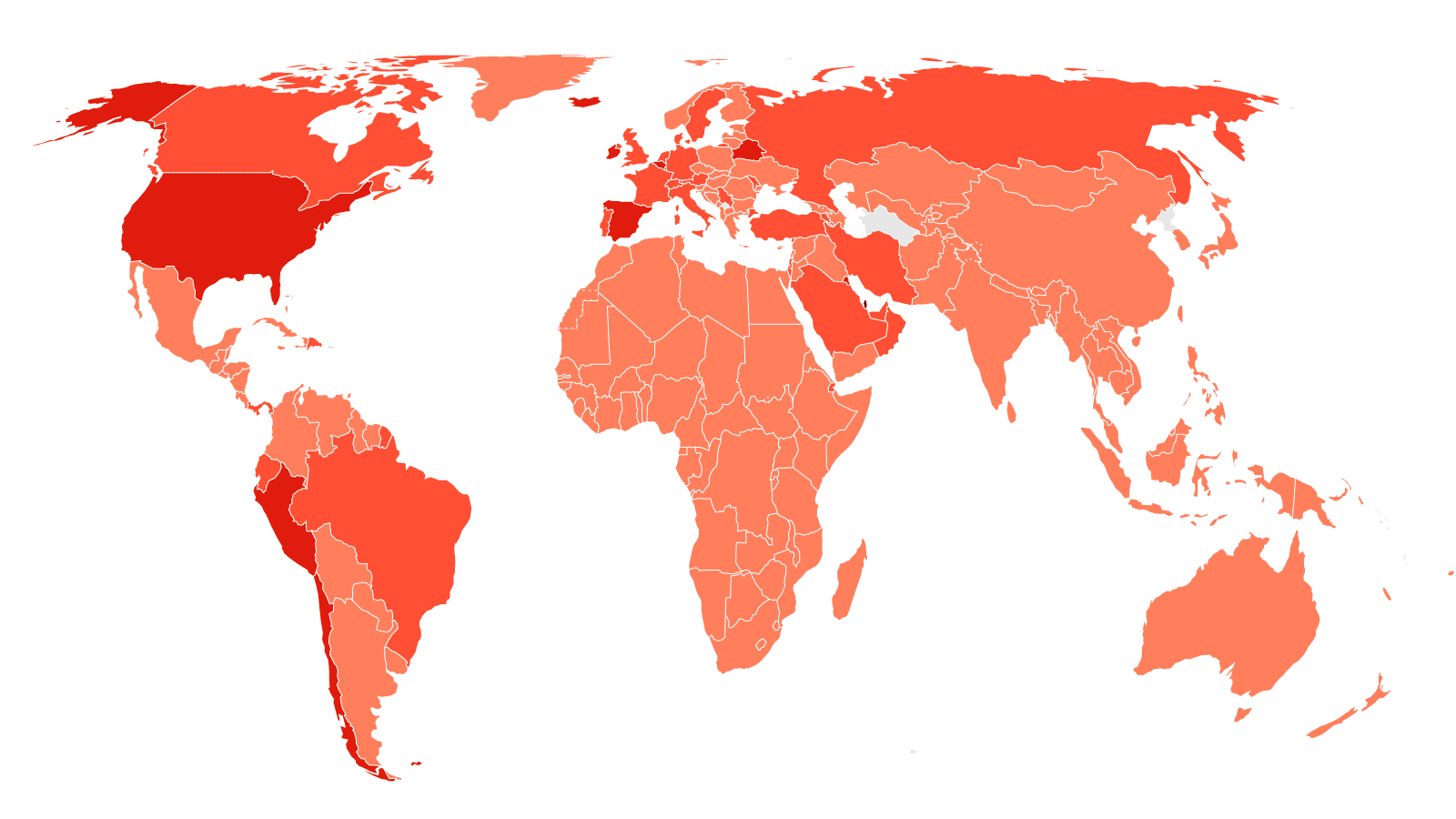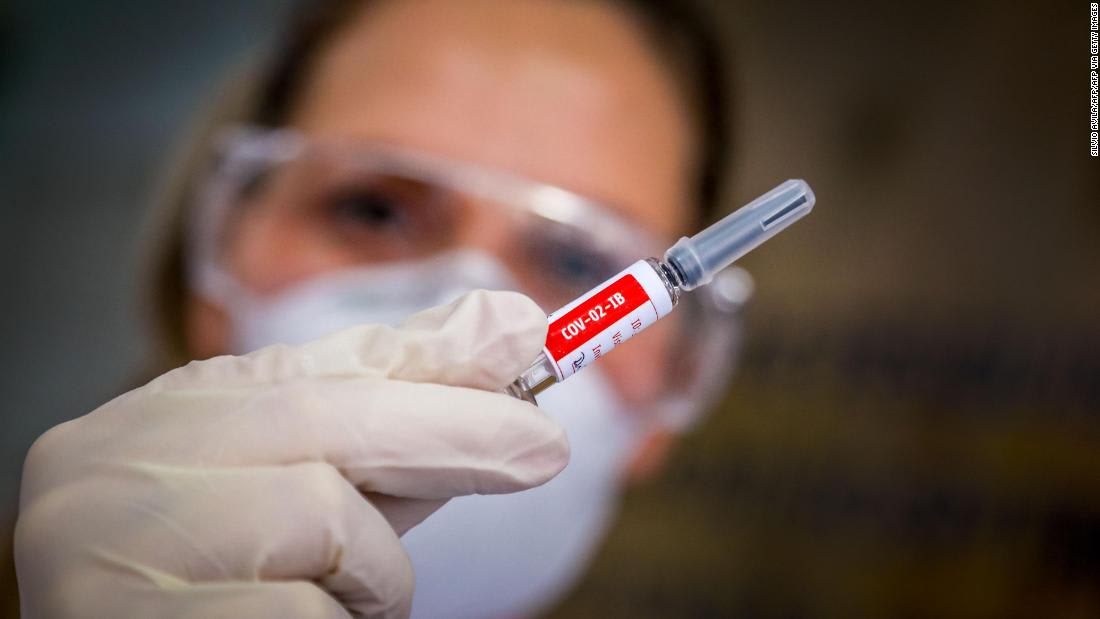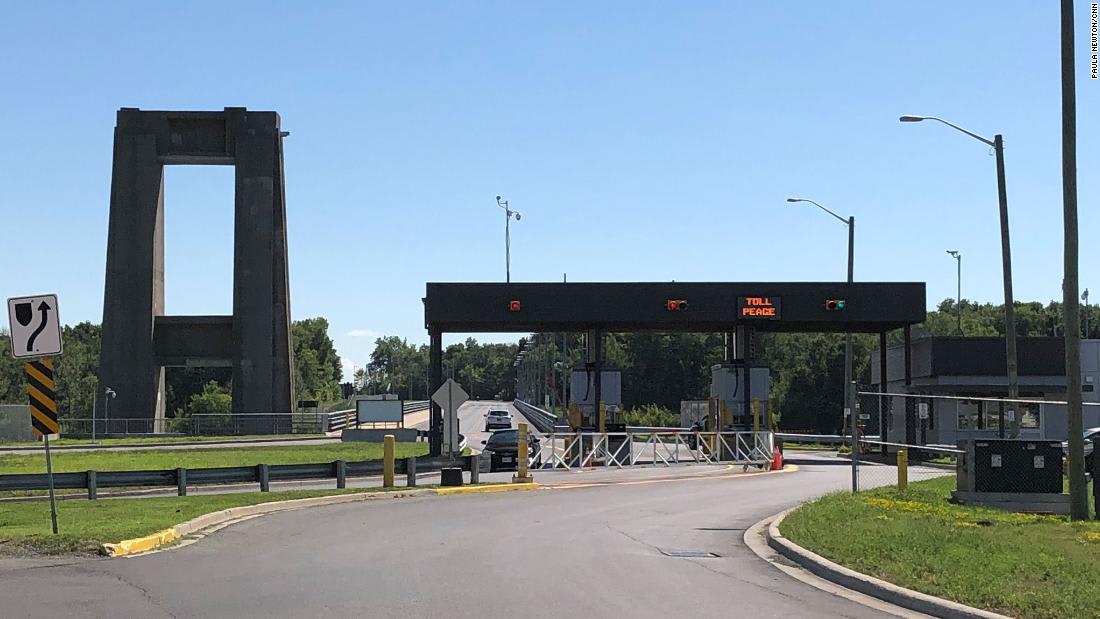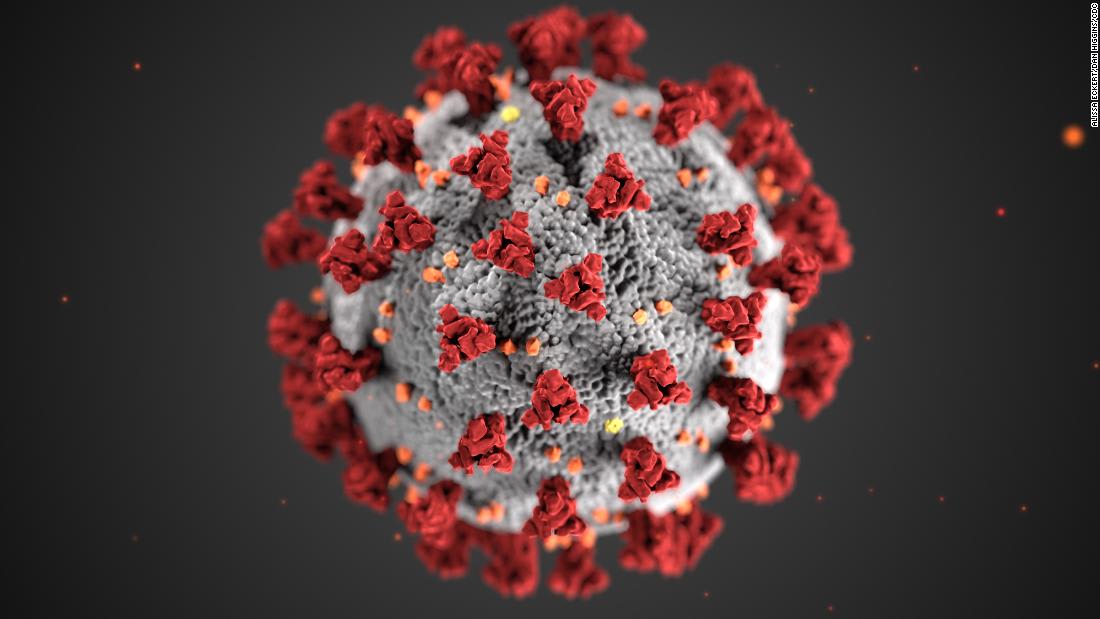South Korean pastor apologizes after more than 1,000 Covid-19 cases linked to his church
From CNN's Gawon Bae in Seoul
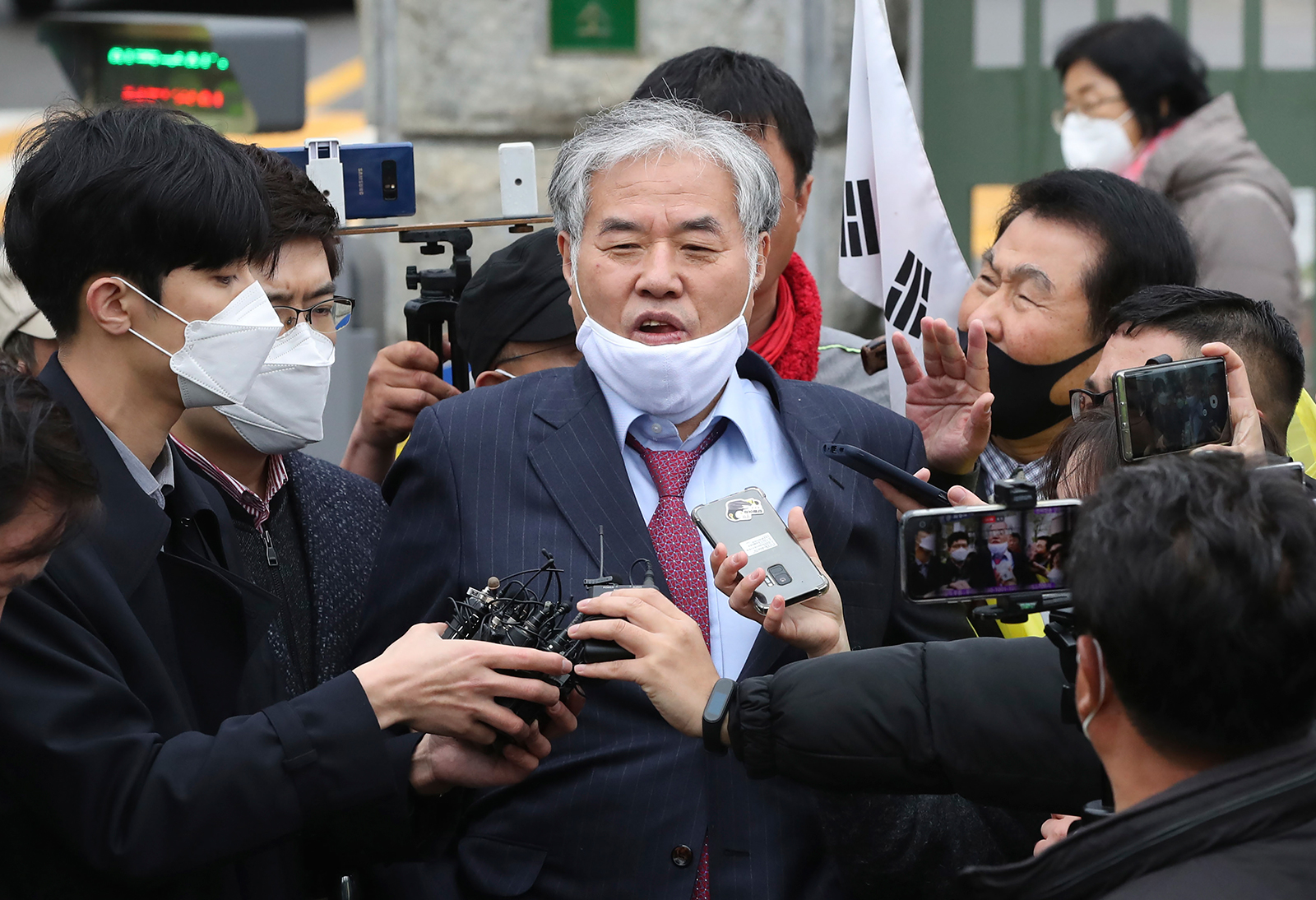 Pastor Jun Kwang-hun of the Sarang Jeil Church speaks outside a detention center in Uiwang, South Korea on April 20. Ko Jun-beom/Newsis/AP
Pastor Jun Kwang-hun of the Sarang Jeil Church speaks outside a detention center in Uiwang, South Korea on April 20. Ko Jun-beom/Newsis/APJun Kwang-hoon, pastor of the Sarang-jeil Church in South Korea's capital Seoul, apologized to the public today after being released from the hospital 16 days after testing positive for Covid-19.
The church attracted widespread backlash in August when it became the center of a coronavirus outbreak. As of Tuesday, 1,083 cases have been linked to the church, according to the country's Centers for Disease Control and Prevention.
On Wednesday, Jun addressed the public wearing a face mask and apologized for the concerns he and his church have caused.
Following the church's outbreak, Seoul's government said it would seek damages against Sarang-jeil Church and Jun for wasting administrative resources and money through their non-compliance.
Jun was already facing criminal charges at the time for allegedly violating quarantine and obstructing contact tracing.
Night curfew to be imposed in Havana for first time as coronavirus cases surge again
From CNN's Patrick Oppmann in Havana
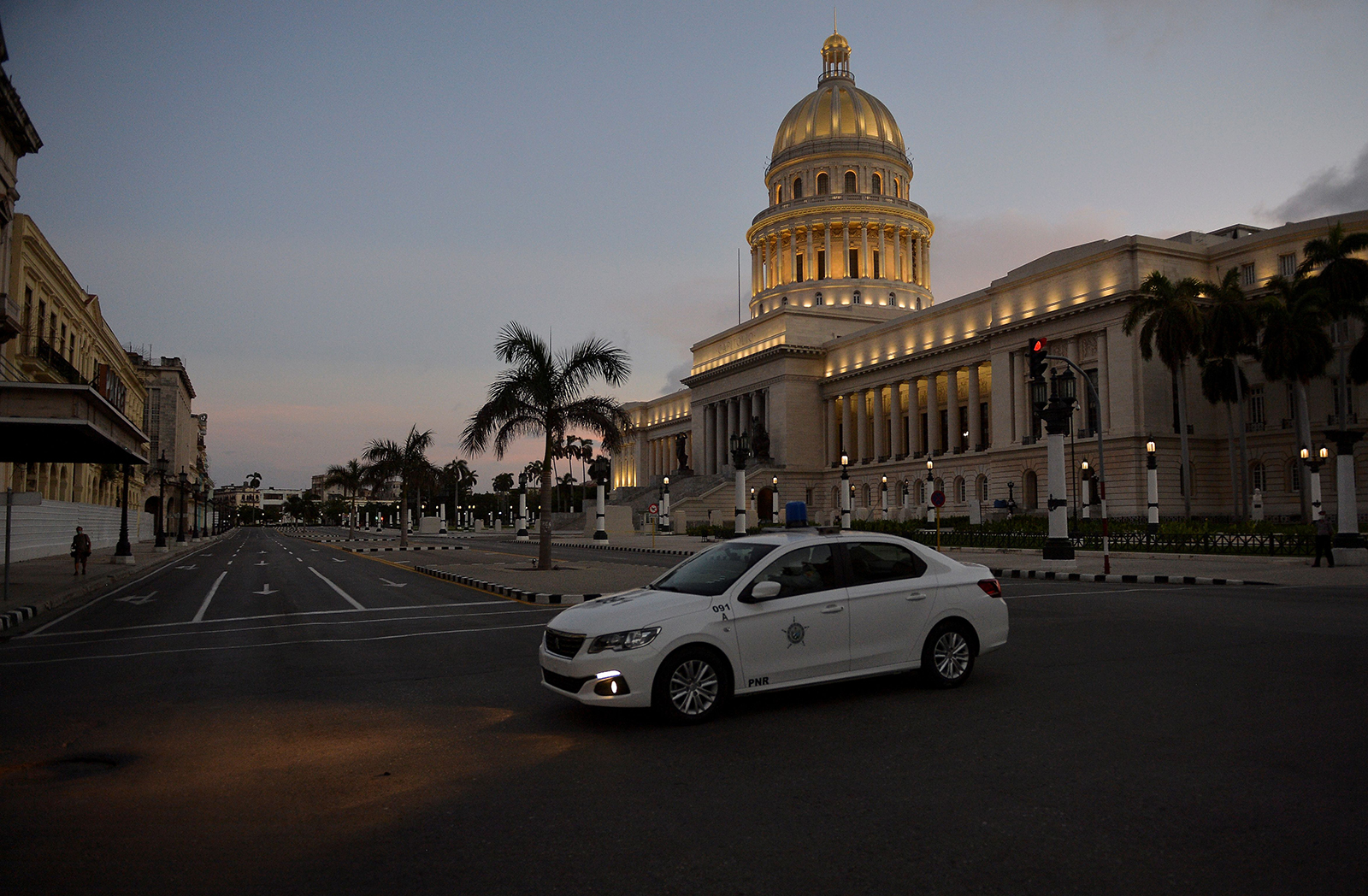 Cuban police patrol the streets of Havana during a curfew imposed to contain the resurgence of Covid-19, on September 1. Yamil Lage/AFP/Getty Images
Cuban police patrol the streets of Havana during a curfew imposed to contain the resurgence of Covid-19, on September 1. Yamil Lage/AFP/Getty ImagesFor the first time since the coronavirus pandemic hit Cuba, Havana residents will face a nightly curfew and will not be allowed to travel to other provinces, the city's mayor said.
Cuban authorities have struggled to control a second wave of coronavirus outbreak in Havana, just weeks after they had said the spread of the virus was all but defeated on the island.
The curfew, from 7 p.m. to 5 a.m., starts Tuesday evening local time. It will last for at least 15 days, said Gov. Reinaldo Garcia Zapata.
He added that the new restrictions will also increase penalties on people not wearing a mask, and ban the consumption of alcohol in public.
Cuba has recorded a total of 3,806 coronavirus cases and 92 deaths, according to data from Johns Hopkins University.
Mexico's total Covid-19 cases top 600,000
From CNN’s Natalie Gallón in Mexico City and Leighton Rowell in Atlanta
Mexico reported 6,476 new cases of Covid-19 and 827 virus-related deaths on Tuesday, according to the country's Health Ministry.
That raises the country's total to 606,036 infections and 65,241 fatalities.
In Latin America, Mexico has reported the fourth-highest number of total coronavirus cases, following Brazil, Peru and Colombia, according to data from Johns Hopkins University.
CNN is tracking worldwide coronavirus cases here:
There's a legitimate way to end coronavirus vaccine trials early, Fauci says
From Liz Szabo, Kaiser Health News
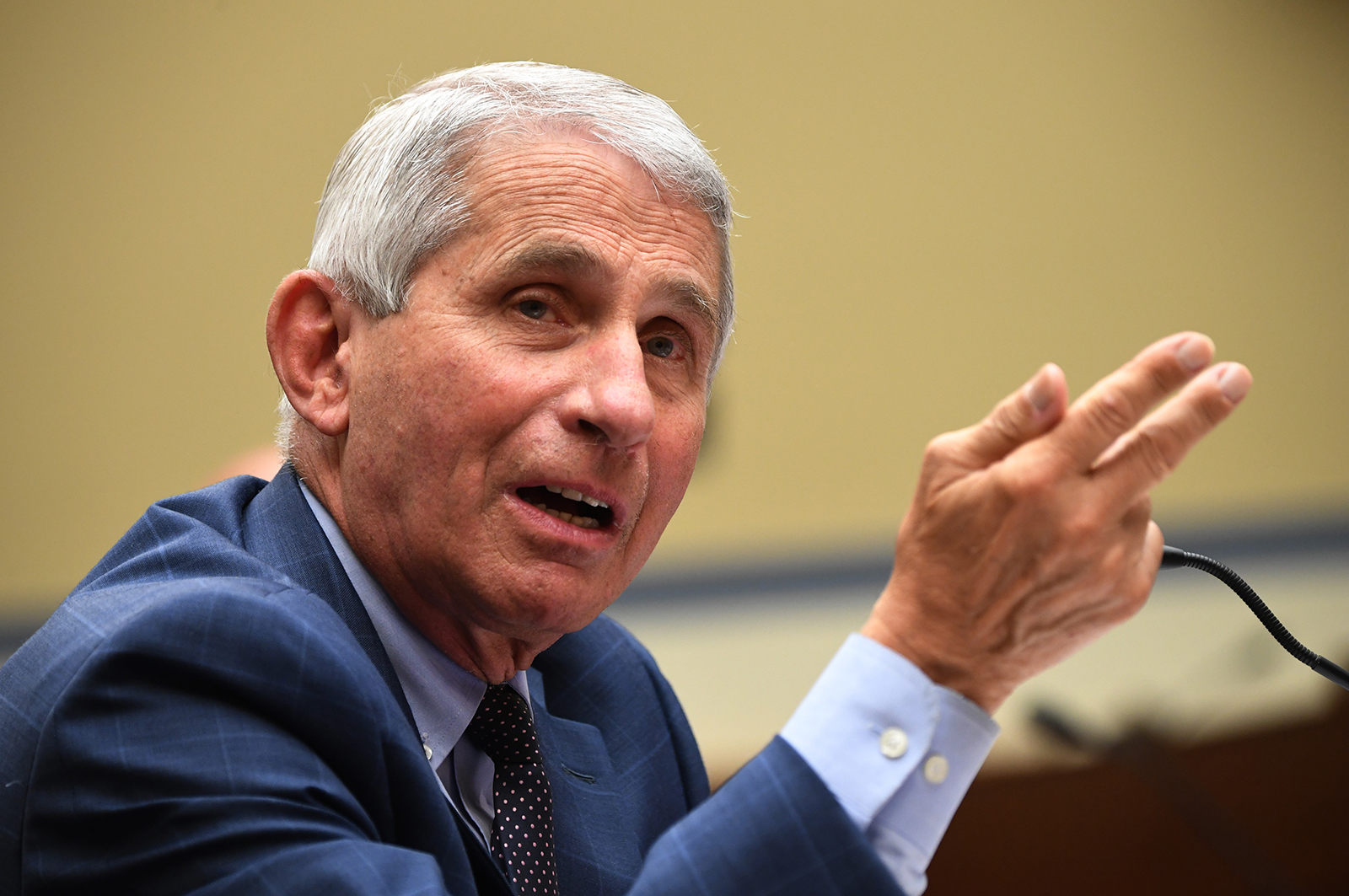 Dr. Anthony Fauci, director of the National Institute for Allergy and Infectious Diseases, testifies before a House Subcommittee on the coronavirus crisis hearing in Washington, DC, on July 31. Kevin Dietsch/Pool/Getty Images
Dr. Anthony Fauci, director of the National Institute for Allergy and Infectious Diseases, testifies before a House Subcommittee on the coronavirus crisis hearing in Washington, DC, on July 31. Kevin Dietsch/Pool/Getty ImagesA Covid-19 vaccine could be available earlier than expected if ongoing clinical trials produce overwhelmingly positive results, said Dr. Anthony Fauci, the nation's top infectious disease official, in an interview Tuesday with KHN.
Although two ongoing clinical trials of 30,000 volunteers are expected to conclude by the end of the year, Fauci said an independent board has the authority to end the trials weeks early if interim results are overwhelmingly positive or negative.
Fauci's comments come at a time of growing concern about whether political pressure from the Trump administration could influence federal regulators and scientists overseeing the nation's response to the novel coronavirus pandemic, and erode shaky public confidence in vaccines. Prominent vaccine experts have said they fear Trump is pushing for an early vaccine approval to help win reelection.
Read the full story:
More than 25,000 coronavirus cases in 37 states reported at colleges and universities
From CNN's Annie Grayer
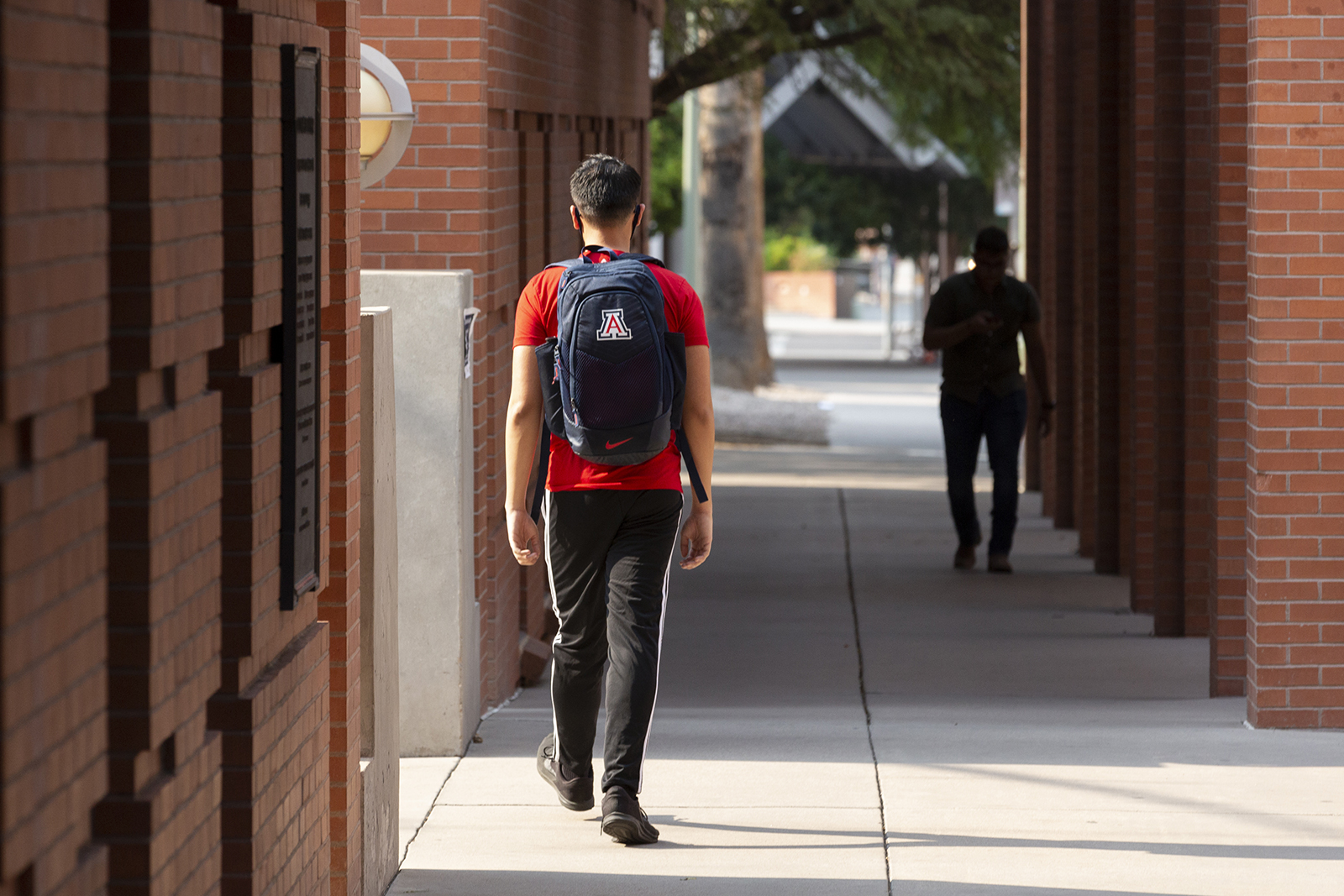 Students walk through the campus at the University of Arizona in Tucson, Arizona, on August 24. Cheney Orr/Bloomberg/Getty Images
Students walk through the campus at the University of Arizona in Tucson, Arizona, on August 24. Cheney Orr/Bloomberg/Getty ImagesSchools are reopening -- and the virus is spreading across US college campuses.
At least 37 states are reporting positive Covid-19 cases at colleges or universities, making a total of more than 25,000 cases among students and campus staff.
The states are:
Alabama, Arizona, Arkansas, California, Colorado, Connecticut, Florida, Georgia, Hawaii, Illinois, Indiana, Iowa, Kansas, Kentucky, Louisiana, Maine, Maryland, Massachusetts, Michigan, Mississippi, Missouri, Nevada, New York, North Carolina, North Dakota, Ohio, Oklahoma, Pennsylvania, South Carolina, South Dakota, Tennessee, Texas, Utah, Virginia, West Virginia, Washington and Wisconsin.
NIH panel says convalescent plasma should not be considered standard care for Covid-19
From CNN's Maggie Fox
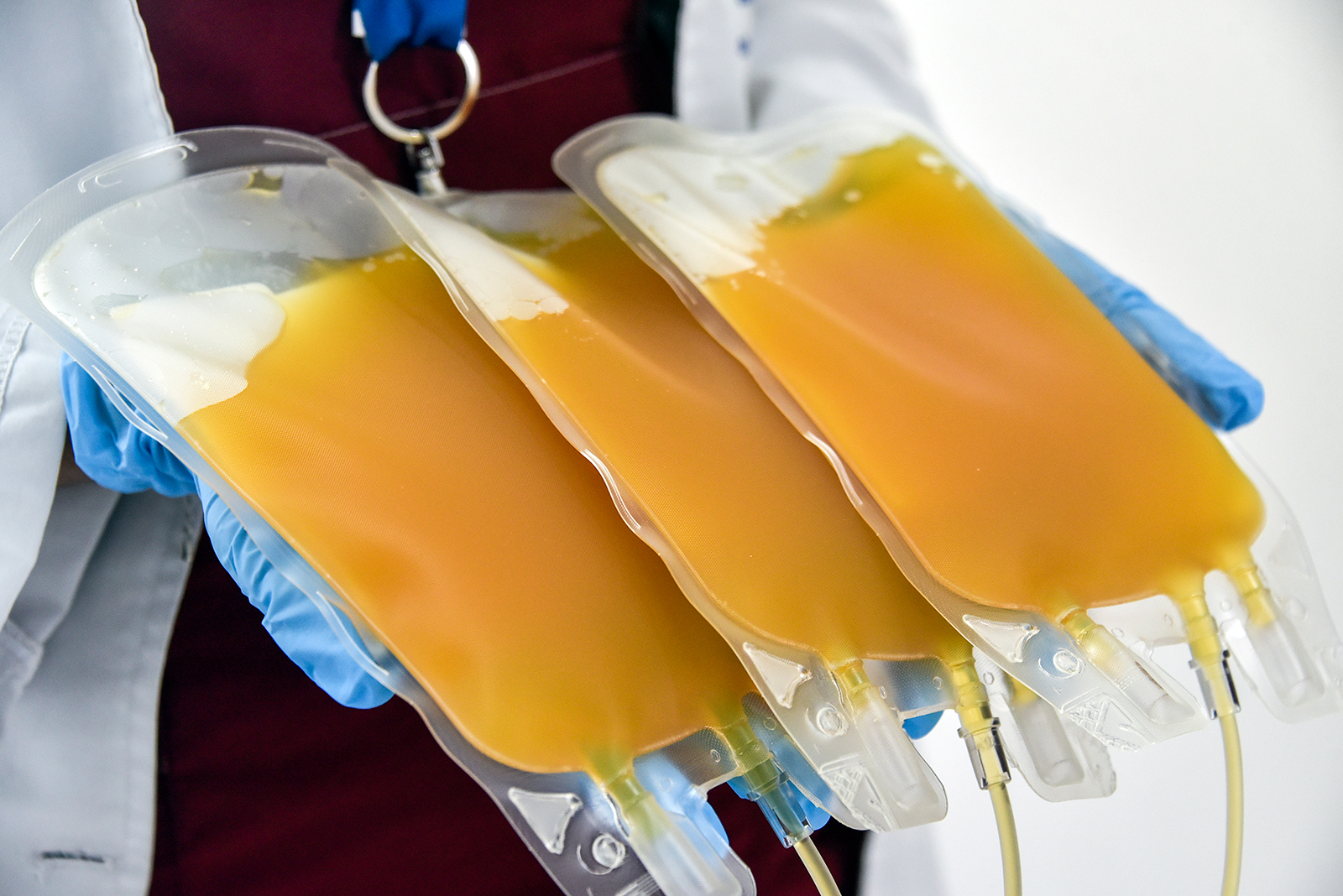 A nurse checks the plasma donated by a man who recovered from Covid-19 in Bogota, Colombia, on August 14. Guillermo Legaria/Getty Images
A nurse checks the plasma donated by a man who recovered from Covid-19 in Bogota, Colombia, on August 14. Guillermo Legaria/Getty ImagesA National Institutes of Health panel says there’s no evidence backing the use of convalescent plasma to treat coronavirus patients and says doctors should not treat it as a standard of care until more study has been done.
“Convalescent plasma should not be considered standard of care for the treatment of patients with COVID-19,” added the committee, which evaluates treatments for coronavirus.
“Prospective, well-controlled, adequately powered randomized trials are needed to determine whether convalescent plasma is effective and safe for the treatment of COVID-19. Members of the public and health care providers are encouraged to participate in these prospective clinical trials.”
Some background: Last week, the US Food and Drug Administration issued an emergency use authorization for convalescent plasma, and US President Donald Trump declared it a historic breakthrough at a news conference.
The timing raised suspicions the White House had pressured FDA -- something FDA commissioner Dr. Stephen Hahn denied several times.
But Hahn had also made misleading comments about the data supporting the use of convalescent plasma -- which is the antibody-rich serum taken from the blood of people who have recovered from an infection. The hope is infusing this plasma into new patients will kickstart their immune response. It’s a treatment that dates back more than 100 years and has never been used broadly.
The NIH panel, led by Dr. Clifford Lane, who heads research at the National Institute of Allergy and Infectious Diseases; Dr. Roy Gulick, chief of the Division of Infectious Diseases at Weill Medical College of Cornell University; and Dr. Henry Masur, chief of the Critical Care Medicine Department at NIH, said much more research is needed into whether the treatment works. Data published so far don’t really show whether it helps patients, they said.
Plus, different patients have differing levels of antibodies, so the treatment is highly variable.
The "northern wall" built between the US and Canada during Covid-19 could stay up longer than anyone expected
From CNN's Paula Newton
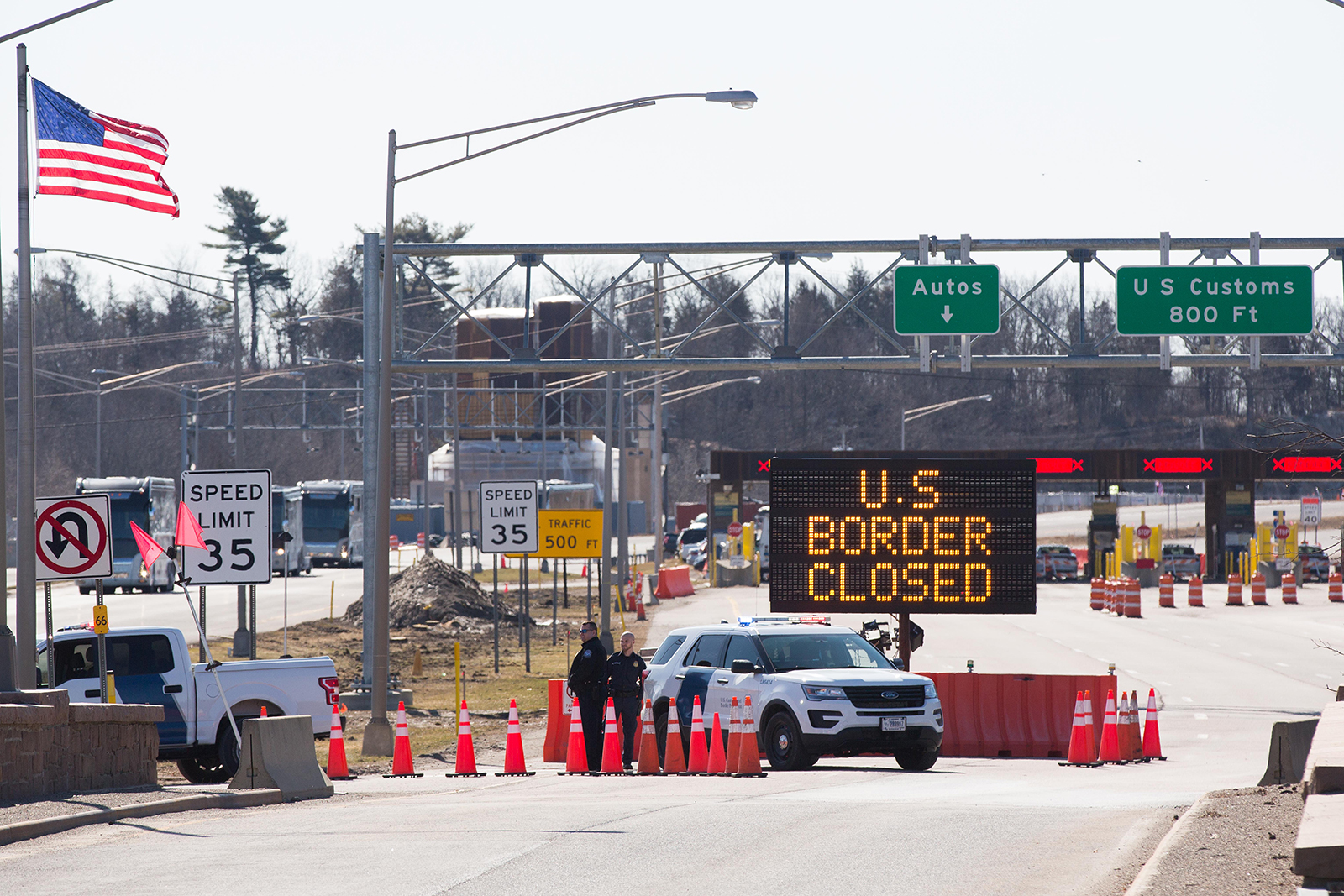 US Customs officers stand beside a sign saying that the US border is closed at the US-Canada border in Lansdowne, Ontario, on March 22. Lars Hagberg/AFP/Getty Images
US Customs officers stand beside a sign saying that the US border is closed at the US-Canada border in Lansdowne, Ontario, on March 22. Lars Hagberg/AFP/Getty ImagesThere were no bricks and mortar, no fencing or cement, no cross-border diplomatic skirmish, just two government orders. And that was enough to essentially shut down the world's longest international border for visitors.
When the United States and Canada mutually agreed in March to shut down the border to mitigate the spread of the coronavirus, no one predicted it would be closed this long. There is still no specified date for its reopening, although trade has continued between the countries.
"There's a closeness that we're definitely missing, but I can tell you not anyone that I have spoken to here wants that border opened anytime soon. We miss you citizens of the US, but we're not comfortable opening the border," Bernadette Clement, the mayor of Cornwall, Ontario, said in an interview with CNN.
East to west for thousands of miles, in communities on both sides of the international divide, the border closure is redefining not just economic relationships, but personal lives, in ways no one expected.
"This really is going to have a long-term impact on our communities, economically, socially and on all the things that are really important to us," said Tim Currier, the mayor of Massena, New York, a "sister" community to Cornwall, just a few miles across the border on the other side of the St. Lawrence River.
No longer. The border is shut tight for any trips that are deemed "non-essential" or discretionary and that includes all recreation and tourism.
Read the full story:
The unspoken long-term coronavirus symptoms
From CNN's Madeline Holcombe
It's been almost five months since Shelby Hedgecock tested positive for Covid-19, and the former personal trainer said her symptoms are still debilitating.
Hedgecock is among patients who call themselves "long-haul survivors" -- those who experience symptoms long after testing positive. And long-term effects like theirs need to be taken seriously, a doctor researching these symptoms told CNN on Monday night.
"This is the conversation that needs to be had in the medical and the research community, not just in the sufferers who are actually dealing with it," Dr. William Li said.
Covid-19 can be a prolonged illness, even among young adults without underlying chronic medical conditions, the US Centers for Disease Control and Prevention reported in July. Some 35% of patients surveyed by the agency said they still weren't back to their usual good health even two to three weeks after testing positive for the disease. The rest said they'd returned to their usual state of health five to 12 days after a positive test.
Hedgecock first tested positive in April. And though she tested negative in May, she is still having neurological issues, cognitive issues, shortness of breath, chest pain, loss of smell and body aches and pains that send her to her bed for days if she participates in even gentle yoga, she told CNN.
Hedgecock's experience is not unique, Li said. His team is looking to connect the symptoms, with data pointing to the virus not just affecting the lungs but the blood vessels that connect the whole body, the doctor said.
"We think that this long-term damage may in part be due to vascular damage, kind of a footprint that the virus leaves even when it's gone from the body," Li said.
Read more:
New research finds it could take a month for Covid-19 patients to clear the virus
From CNN's Lauren Mascarenhas
Covid-19 patients may need to wait over a month before being retested to know whether they have cleared the virus, and one in five negative test results could be false, according to research published Tuesday in the British Medical Journal.
Dr. Francesco Venturelli of the University of Modena and Reggio Emilia and colleagues studied 1,162 patients in the Reggio Emilia Province of Italy who tested positive for Covid-19 using a polymerase chain reaction (PCR) test.
Patients were retested around 15 days after their first test, 14 days after their second and nine days after their third. The researchers set these time intervals in accordance with European Centre for Disease Control and Prevention recommendations.
About 60.6% of the patients who recovered tested negative for Covid-19 by their first follow-up test. Another test confirmed that negative result in just 78.7% of these patients, which the team says suggests about one in five negative tests are false negatives. They say this could mean that many are still shedding the virus after testing negative and unknowingly passing it on to others.
The researchers determined a patient had cleared the virus once they tested negative on two consecutive PCR tests. Overall, it took about 30 days from diagnosis and 36 days from the onset of symptoms for patients to clear the virus.
It took slightly longer for older patients and those with more severe disease to clear the virus. The length of time increased from 35 days for those under 50 years old to 38 days for those over 80. Non-hospitalized patients took about 33 days, while hospitalized patients took about 38 days.
By 34 days after patients first noticed symptoms, nearly 87% of them tested negative. This suggests patients may need to wait a month or longer to determine whether they have truly cleared the virus, the researchers said.
The team notes that understanding the timing of viral clearance is key to determining testing strategies and ensuring people don’t have to spend unnecessary time in isolation. The say that postponing the follow-up testing of those who are no longer experiencing illness or symptoms could increase the efficiency and performance of testing strategies.

 5 years ago
591
5 years ago
591 